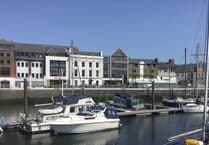Our share of VAT and other Customs duties is expected to top £400m for the last financial year.
Common duties are pooled and shared under a 1979 agreement with the UK.
Those common duties are VAT and those on beer, wine, cider and spirits, tobacco products, pool betting, Customs duty and the soft drinks industry levy.
Since 2020, our share has been calculated under the Final Expenditure Revenue Sharing Arrangements (FERSA).
For the year 2022-23 the island expects to receive £405.6m under the FERSA arrangement – comprising VAT of £358.1m and £47.5m in other duties. The account for the year has yet to be audited but it is not expect that these amounts will change.
The island’s VAT share under FERSA has climbed steadily from £315.2m in 2019-20 to £328.9m the following year and to £343.2m in 2021-22 – and now to the £358.1m expected in 2022-23.
This year’s budget forecasts VAT revenues of £356m and an additional £84.7m in other revenues raised by Custom and Excise. It’s a significant contribution to a total estimated government revenue of £1.2bn.
After the UK government revised the Customs revenue sharing arrangement twice in two years, in 2009 and 2011, our share of revenue from the Common Purse fell from a high of £464m in 2006-07 to a low of £252m in 2012-13. The loss of some £200m in revenue – then a third of government income – put a major squeeze on the public finances.
But by 2019-20 our share of pooled Customs revenue had climbed back to levels not seen since before the VAT bombshell.
Detailed VAT and duty accounts for 2017 to 2022 are being laid before this month’s Tynwald sitting.
But they only show the amount collected rather than our share of receipts from the revenue sharing agreement.
They show that total net duties collected in 2021-22 were £138m, down from more than £200m in 2017-18.
So why is the share we receive so much bigger than the amount collected?
A spokesman for Customs and Excise explained: ‘VAT and common duties that relate to goods and services consumed in the Isle of Man can be collected in the UK; and similarly VAT and common duties that relate to goods and services consumed in the UK can be collected in the island.
‘This is the reason why the Isle of Man receipts under FERSA are considerably higher than the amount of VAT and duties raised locally – he mechanism makes provision for the indirect taxes that are collected in the UK on goods/services that are “consumed” in the island.’
FERSA is based on information submitted in the Household Income and Expenditure Survey. The latest survey began last month and will run until March next year.
Statistics Isle of Man aims to survey a minimum of 1,000 households, and letters inviting households to participate are in the process of being out on a rolling, monthly basis.
All households chosen to participate in the survey will be issued on completion a payment of £20 for one adult member of the household, £10 for each additional adult over 16 and £5 for each child. Participating households will also be entered into a draw for that month with a prize of £1,000.

.png?width=209&height=140&crop=209:145,smart&quality=75)


.png?width=209&height=140&crop=209:145,smart&quality=75)
Comments
This article has no comments yet. Be the first to leave a comment.